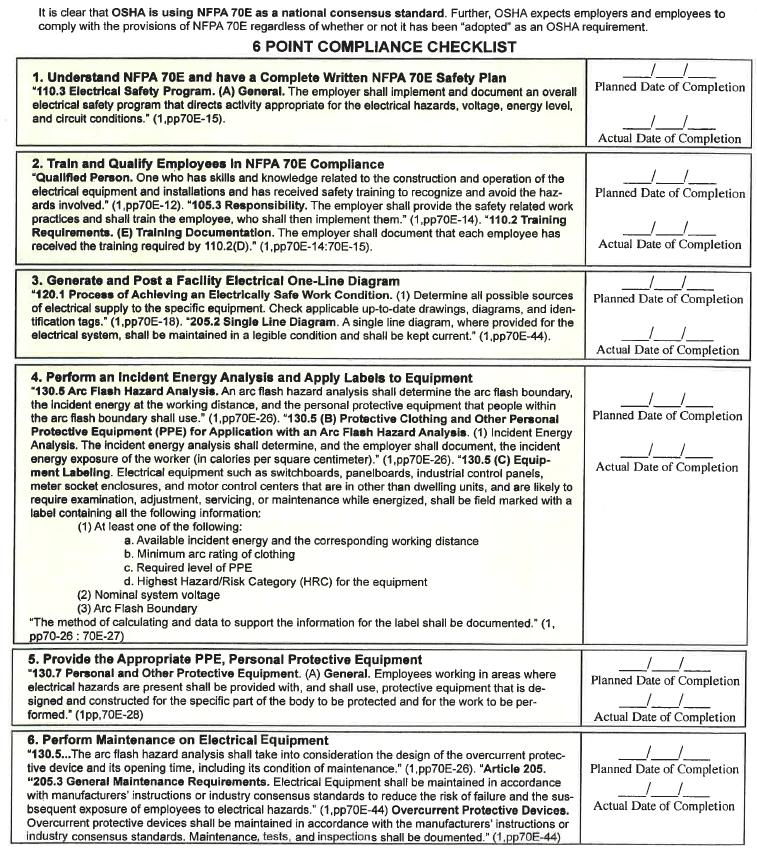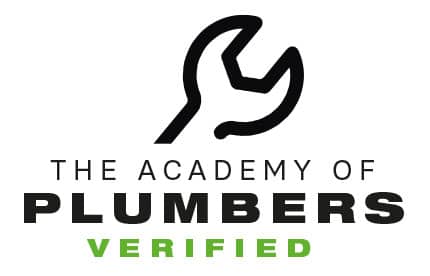Becoming NFPA 70E Compliant.
Why does your facility need to be compliant?
- Protect your assets (Personnel & Facility)
- Limit your liability
- OSHA is using NFPA 70E as a national standard for citations
- Identify potential hazards
- Reduce the risk of violations and citations
OSHA 1) General Duty Clause 5(a) (1) and 20 Subpart 1 PPE 1910.132(d)(1)
Every employee has a right to a place of employment which is free from hazards. Employers shall complete a hazard assessment. Identify and provide PPE to protect those employees.
How do you become compliant?
- Maintain an update NFPA 70E safety plan
- Train and qualify employees in NFPA 70E Compliance
- Generate, update, and post a one-line diagram
- Perform an Incident Energy Analysis then apply Arc Flash Labels
- Provide employees with Personal Protective Equipment (PPE)
- Electrical Predictive and Preventive Maintenance per NFPA 70B
What if you don’t become compliant?
- Increase your risk for electrical hazards
- Expose your potentialfor willful violations
- Greatly increase your facility’s liability
What is the relationship between OSHA & NFPA 70E?
NFPA 70E is considered a national consensus standard and is intended for use by employers, employees, and OSHA. OSHA has not “adopted” NFPA 70E, simply because adoption would require a lengthy and expensive process. OSHA has instead referenced compliance to NFPA 70E using Section 5(a)(1) of the Occupational Safety & Health Act of 1970, commonly referred to as the “general duty clause,” as their basis for implementation. The general duty clause states that employers “shall furnish to each of its employees: employment and a place of employment which are free from recognizing hazards that are causing or are likely to cause death or serious physical harm to its employees.”
It is clear that OSHA is using NFPA 70E as a national consensus standard. Further, OSHA expects employers and employees to comply with the provisions of NFPA 70E regardless of whether or not it has been “adopted” as an OSHA requirement.
6 POINT COMPLIANCE CHECKLIST

6 Point Compliance Checklist



